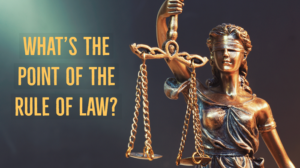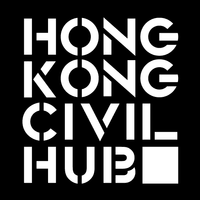U.S. Secretary of State Mike Pompeo met with Hong Kong pro-democracy leader Martin Lee on Thursday, the State Department said, as Hong Kong activists seek to derail a proposed extradition law pushed by Beijing, Reuters reports:
Democracy activists fear the legislation would erode rights and legal protections in the former British colony that were guaranteed under the Basic Law when it returned to Chinese rule in 1997. More than 130,000 people marched against the proposed legislation several weeks ago in one of the biggest protests since the Umbrella pro-democracy movement in 2014.
 Lee led a delegation of Hong Kong democracy advocates who testified before a bipartisan commission and addressed a National Endowment for Democracy forum this week, appealing for the US to take action to stop Hong Kong’s controversial extradition proposal.
Lee led a delegation of Hong Kong democracy advocates who testified before a bipartisan commission and addressed a National Endowment for Democracy forum this week, appealing for the US to take action to stop Hong Kong’s controversial extradition proposal.
The legislation has been described as possibly China’s worst assault yet on the rule of law.
The delegation – comprised of Lee, civil society activist Nathan Law Kwun-chung, veteran journalist Mak Yin-ting and former Legislative Council member Lee Cheuk-yan – highlighted the bill’s chilling impact on political and media freedoms, and on the city’s liberal, open business environment.
Beijing has taken Hong Kong from a “high degree of autonomy” to “comprehensive jurisdiction,” Lee told the NED forum. “If we can maintain our freedom, it’s possible that rule of law will spread to the mainland. If we lose it, forget it.”
 The ruling Communist Party takes the view that “we need to change Hong Kong before Hong Kong changes us,” and aims to destroy the young generation’s political participation, Cheuk-yan said.
The ruling Communist Party takes the view that “we need to change Hong Kong before Hong Kong changes us,” and aims to destroy the young generation’s political participation, Cheuk-yan said.
Hong Kong has seen the steady erosion of its political and media liberties in the last few years, while facing the possibility of being absorbed into the mainland, says analyst Hilton Yip. Yet the city-state has stubbornly clung to its distinct identity, forged through elements like rule of law that benefit both residents and businesses. If the extradition law passes, then Hong Kong will lose a huge chunk of this distinctiveness, and the facade of being different from the mainland will truly crumble, he writes for Foreign Policy.
Speaking at a hearing before the US Congressional-Executive Commission on China, which monitors Beijing’s actions on human rights and its commitment to the rule of law, the delegation warned of dire consequences the bill would bring not only to Hong Kong, but also to the US and other nations, many of which do not have extradition deals with mainland China but do with Hong Kong, The South China Morning Post adds:
“The US has a special interest in blocking this law – and indeed may be Beijing’s special target of the law,” said Lee, a long-time pro-democracy advocate and founder of the Democratic Party in Hong Kong,
 Law, who was elected the youngest-ever member of the Legislative Council only to be ousted, ostensibly for “improper oath-taking”, said that “I am still fighting, and confident that Hong Kong is China’s best hope for democracy”
Law, who was elected the youngest-ever member of the Legislative Council only to be ousted, ostensibly for “improper oath-taking”, said that “I am still fighting, and confident that Hong Kong is China’s best hope for democracy”
The meeting with Pompeo lasted for 30 minutes and he listened to them very carefully, veteran journalist Lee Cheuk-yan told the Post.
“He said he was very concerned about the negative impacts the extradition law would have on Hong Kong,” he said. “He said he would follow up with actions, but did not specify what actions will be taken. The mere fact that Pompeo was willing to meet us is a clear signal that the US is paying very close attention to the extradition law.”
But foreigners looking for the U.S. to defend liberal democracy might be disappointed, analyst Gabriel Schoenfeld writes for The Bulwark.







